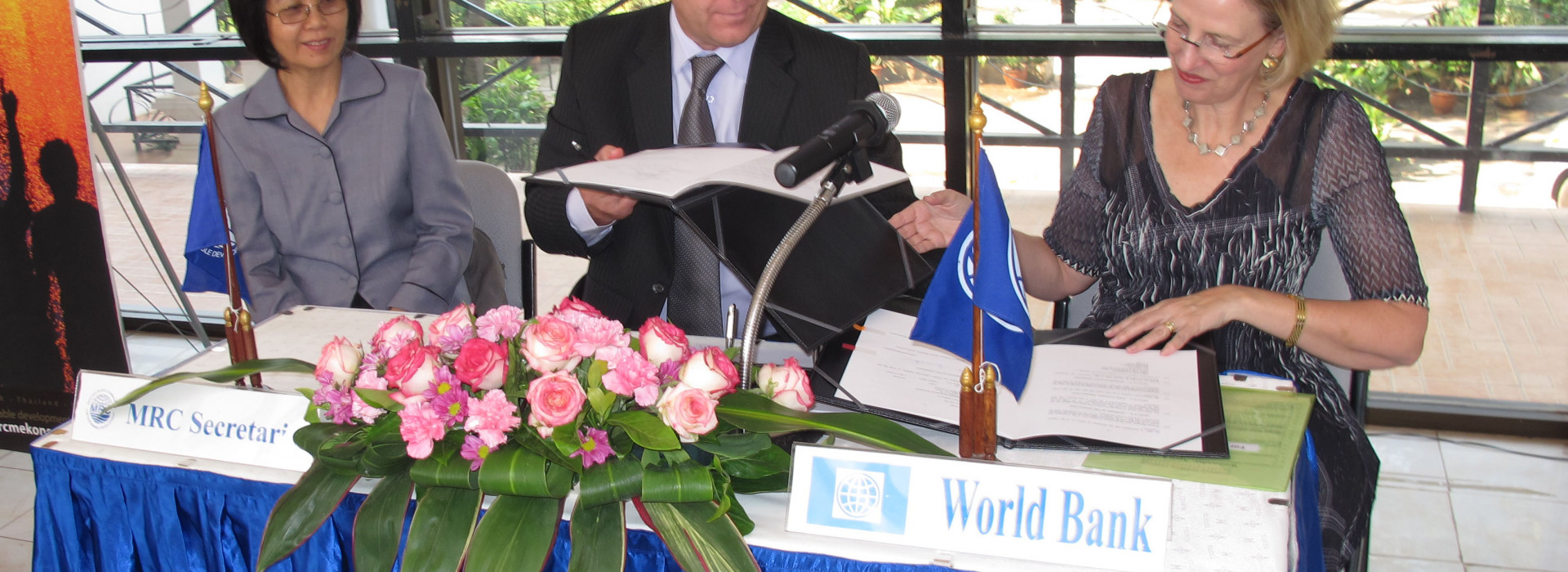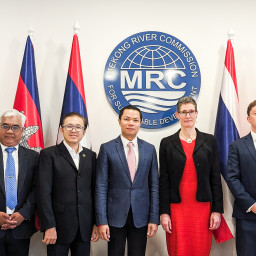World Bank provides US$ 8 million to improve Mekong resources management
Funding aims to increase dialogue, cooperation and understanding on integrated and transboundary approach
Vientiane, Lao PDR, 4 April 2012— The World Bank today commits US$ 8 million to the Mekong River Commission (MRC) to promote transboundary management of Mekong resources.
The funding is to increase dialogue, cooperation and understanding on integrated water resources management principles among the Lower Mekong Countries—Cambodia, Lao PDR, Thailand and Viet Nam
Covering a period of five years until 2017, the World Bank’s support aims to facilitate dialogue and implementation of pilot activities that address key transboundary water resource management issues in the Lower Mekong Basin It will also help establish an approach for environmental impact risk and disaster risk assessment.
Some of the main activities this funding will support are improved communication with key stakeholders, including governments, the private sector, civil society and local communities, so they are better informed on how uses of water and related resources in one territory could potentially cause negative effects that go beyond borders.
The cooperation between the WB and MRC is expected to serve as an example of how the two can work to implement quality, integrated water management practices in the Lower Mekong Basin at the regional, national and sub-national levels.
“Through this support, the MRC will assist the Member Countries apply the integrated water resources management to their national decision-making as well as implementing initiatives on transboundary management such as a joint fisheries management project on the Mekong and Sekong Rivers in Cambodia and Lao PDR,” said Hans Guttman, MRC Chief Executive Officer at a signing ceremony held at the MRC Secretariat.
”The Bank’s contribution will bring about greater transboundary cooperation among governments and other stakeholders. Already communities in Thailand’s Songkhla Lake Basin have begun meeting their counterparts from Cambodia’s Tonle Sap Lake and have exchanged experiences,” added Mr. Guttman.
The financial support will go to the MRC’s Mekong Integrated Water Resources Management Project (M-IWRMP) that promotes coordinated development and management of water and related resources, ensuring that economic and social welfare is maximised without compromising the sustainability of ecosystems.
Notes to editor:
The MRC’s Mekong Integrated Water Resources Management Project (M-IWRMP) follows on the Mekong Water Resources Assistance Strategy, developed jointly between the World Bank and the Asian Development Bank in 2006. It builds on 15 years of MRC achievements, particularly the Water Utilisation Project (WUP) which operated from 2000 to 2008.
The project assists Member Countries with the practical implementation of five MRC Procedures which provide a systematic and uniform process for implementation of the 1995 Mekong Agreement. The five Procedures are: the Procedures for Data and Information Exchange and Sharing, the Procedures for Water Use Monitoring, the Procedures for Notification, Prior Consultation and Agreement, the Procedures for the Maintenance of Flows on the Mainstream, and the Procedures for Water Quality.
Developed by the MRC, the M-IWRMP has received financial support from the Australian Agency for International Development (AusAID) for regional components that aim to bring about a regional enabling framework for effective implementation of the five Procedures. Support from the World Bank will go to national and transboundary implementation of the Procedures such as transboundary water quality monitoring initiatives.
The World Bank has been the MRC’s Development Partner since 1997.
The MRC is the intergovernmental body responsible for cooperation on the sustainable management of the Mekong Basin whose members include Cambodia, Lao PDR, Thailand and Viet Nam. In dealing with this challenge, the commission looks across all sectors including sustaining fisheries, identifying opportunities for agriculture, maintaining freedom of navigation, flood management and preserving important ecosystems.
By 2030, the MRC’s goal is to achieve financial sustainability with the support of its member states.
-END-





